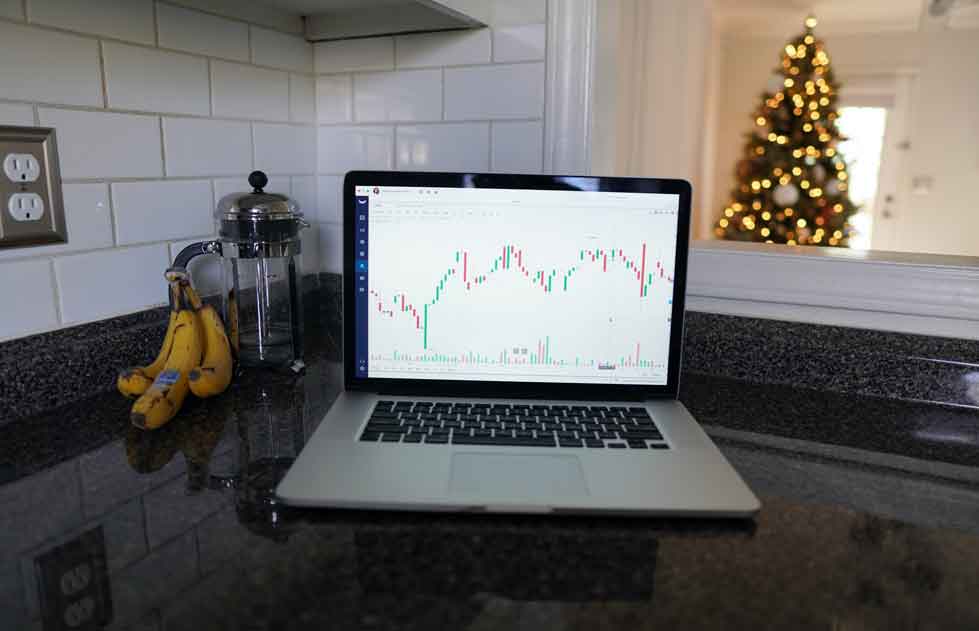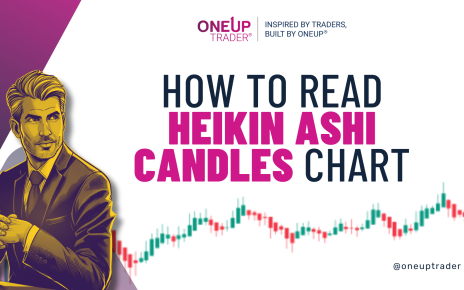The financial market offers so many opportunities that almost anyone that wants to join can do so. As you may well know, there are many assets and innumerable brokers that will provide you to market access, and start your trading career.
However, many people shy away from trading because of the high capital you need, and the significant risk involved. It is true that there are minimum deposits and the risk of incurring a loss is high in the trading world, but not all hope should be lost.
There is yet one more amazing opportunity out there in the financial world. This is to trade low risk and earn money by using someone else’s funds, and it is called “funded trading”. In this article, we have written all you need to know about who can become a funded trader and how to do it.
Time to get funded and achieve your profit target! Get a funded trading account!
What is a funded trader?
As mentioned before, a funded trader will have a favorable chance to access the financial market without trading with their own funds. A risk-free, fully funded market, and positive returns are just a few steps away.
A funded trader is an individual that goes through an examination process to qualify as a trader. Once qualified, the trade will use the company’s funds to speculate on the market as a fully funded trader. In other words, a funded trader will use a proprietary trading account to expand the firm’s financial transactions as well as their own profit target.
Under this regime, the traders apply a trading strategy supported by the company and will follow certain predetermined conditions. Some of these can be the maximum starting capital, daily loss limit, maximum position size, and types of assets to be traded. Ready to get fully funded?
Before deciding which kind of trader you can or want to be or what kind of trading you want to do, it is necessary to differentiate each of them. An independent trader will open an account through a broker. The trader will only be asked to include basic personal information, and make an initial deposit.
When a stand alone trader credits their account for the first time, they will be asked for a minimum deposit. independent traders use their own funds so both their losses and gains are 100% theirs. It means that it is riskier, and possibly more expensive since you would use your own funds in day trading, forex trading, or other types of trading.
Social trading is where you interact with other traders and have the opportunity to imitate their trading positions. In this way, you can copy what more experienced traders do or send them messages. They will be executing trades according to their personal knowledge and analysis.
Although social trading is more inclusive and you can have quick access to trading information, the risk is not eradicated, you are trusting what the other trader is doing, and their risk will now become your own. Start trading!
Get funded and check the OneUp Trader social trading community
Different options to become a trader?
Financial markets offer many types of instruments and asset classes, to choose from such as commodities, cryptocurrency, forex pairs, bonds, futures trading, and more.
But in the same way that you can choose which securities are best for your trading profile, you can also decide what kind of trader you want to become. There are funded accounts with trading programs, proprietary trading, and self-funded traders.
Below we have specified each of the trading characteristics so you can differentiate them and decide if you can or want to become a funded trader.
Get a funded trader account – trading programs
A funded account means you have the opportunity to trade using the company’s funds and keep a percentage of the profits you earn for yourself. You will not have to fund your own account or pay fees and commissions to a broker.
However, you will have a certain percentage taken from your gains. It is best to look for a funded trading platform that offers the largest portion so you can keep the maximum amount possible of your earnings to continue winning and have a better incentive.
Before you are given access to a funded account you will have to go through a so-called “funded trader program”.
Proprietary trader
Proprietary trading is when a firm trades securities using its own money. They are looking to maximize their profit by trading, and not only charging fees and commissions to clients.
For this, they need proprietary traders, individuals that will buy or sell assets on their behalf. These traders earn a commission or a fixed percentage of what they earn.
Self-funded trader
A self-funded trader is a person that uses their personal funds to trade. They can use any technique they want to trade, and not follow someone else’s deadlines or trading rules. However, they must respond personally to their losses using their own income, while their gains are also theirs alone.
A self-funded trader will always keep 100% of the profits and withstand eventual losses entirely.
What is a funding trading platform?
A trading platform is a software that allows traders to buy and sell assets based on a margin account. Through platforms, you are allowed to access the securities exchange. Each platform provider will offer additional tools such as technical analysis, alerts, news, indicators, live quotes, and more.
Trading platforms can be accessed on your browser online or downloaded as an app to your mobile, tablet, or desktop.
Funded trading accounts, in turn, are trading platforms that are programmed to accommodate funded traders. This means that the company you are trading for will have access to your trades and your performance information in your funded account.
As a trader, you will also have specific rules to follow that might be enforced by the platform. If you want to get a funded account, some of these could be the following: maximum effective leverage, risk management parameters, daily loss limit, maximum position size, and more.
What a good funded trader program should have
To pick a good funded trading platform it is important to understand where you are at as a trader, what you are looking for, which asset you want to trade, and under what rules you will be trading.
It is key to understand funded trading. Remember each funded trading platform and funded trader program has different rules and commissions.
A good funded trading platform should be regulated and have clear terms and conditions so you can understand what requirements and rules you must follow as a trader. For example, must you reach a certain profit target during your time in funded trading? Can you hold positions overnight or use leverage? Can you access futures, stocks, or forex trading?
Other funded trading platform guidelines might be that you have to trade for a minimum of days during a week or a month. Check if there are maximum or minimum position size requirements or any maximum loss limits. Moreover, each platform will have different percentages that will be discounted from your total gains.
Start trading with OneUp Trader; 5 different funded trading programs
Pros and cons of funded trading account
Every financial decision has its pros and cons, including funded accounts. Before making your decision it is important that the advantages exceed the disadvantages, and go hand in hand with your financial goals of having a funded account.
We have made a list of both the positives and possible negative aspects of being a funded trader.
Funded accounts – Pros
- After passing the funded trader program you can trade risk-free on funded accounts.
- You won’t need to fund your own initial account balance in a funded account.
- If you have losses on a funded account, they will not affect your own capital.
- You only need a PC and an internet connection for a funded trading account.
- With the right platform, you can trade using a considerable amount of money on funded trading accounts.
Funded accounts – Cons
- If you have a funded account, part of what you earn will be shared with the company.
- If you do not perform as expected, your funded account will be closed.
- You must trade complying with the company’s rules.

How to access funded trading accounts
If you want to access a funded trading account you must first sign up for an examination process in a funded trader program. For this, you must open a trading account. Sometimes, platforms offer more than one funded trading account with different demo accounts and starting capital levels and rules.
After you make your choice you must fill in basic personal information like name, phone number, email, and possibly your address too.
Once you are registered in the funded trading account you can choose the security exchange to access the assets and real-time quotes you need. When this is ready you will be admitted to the funded trading platform, their educational section, and their simulating platform before having your final evaluation.
You must practice and trade during a period of time until you prove you accomplish steady financial growth. After you demonstrate you are worth the firm’s capital and time you will have full access to funded trading accounts.
Is it a good idea to become a funded trader and open a funded account?
The decision of becoming a funded trader and opening a funded account will depend on certain aspects of your life, needs, and goals. One of these is your financial possibilities, and how this can affect your trading career.
Can you fund your own solo trading accounts and will you be able to respond to your trading losses? If you want to get fully funded, trade risk-free, and speculate using someone else’s funds, then becoming a funded trader might be a good idea to start trading.
However, there are details to remember before your final decision. You must go through an examination process and get evaluated to prove you are fit to trade. The company will want to see continuous growth and not pure trading luck.
Since their partners’ funds are the ones that are being traded, they need to know they can trust you before giving full access to their funded trading accounts.
Also, there will be certain rules you must follow as a trader when trading for someone else. You might have to trade for a minimum of days or hours during a period of time to keep your trading accounts open. Other guidelines might include closing all trades before the market closes, daily loss limit, maximum position size, data fees, profit split, and more.
In the end, the rules for trading both funded accounts and your own money are the same. Control your losses, manage your risks, and maximize your profits. If you can deal with all three aspects you will be a profitable trader.
That being said, funded accounts are the perfect gateway for your financial freedom. After completing your trading evaluation, you will be able to become profitable with someone else’s money and even sharing profits.




